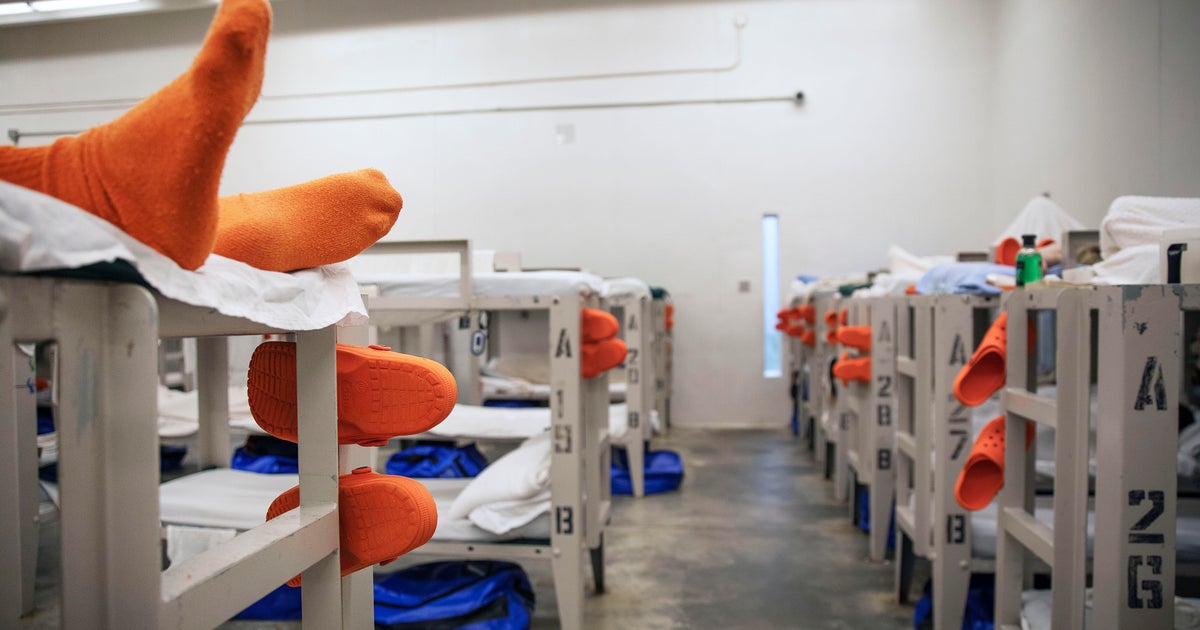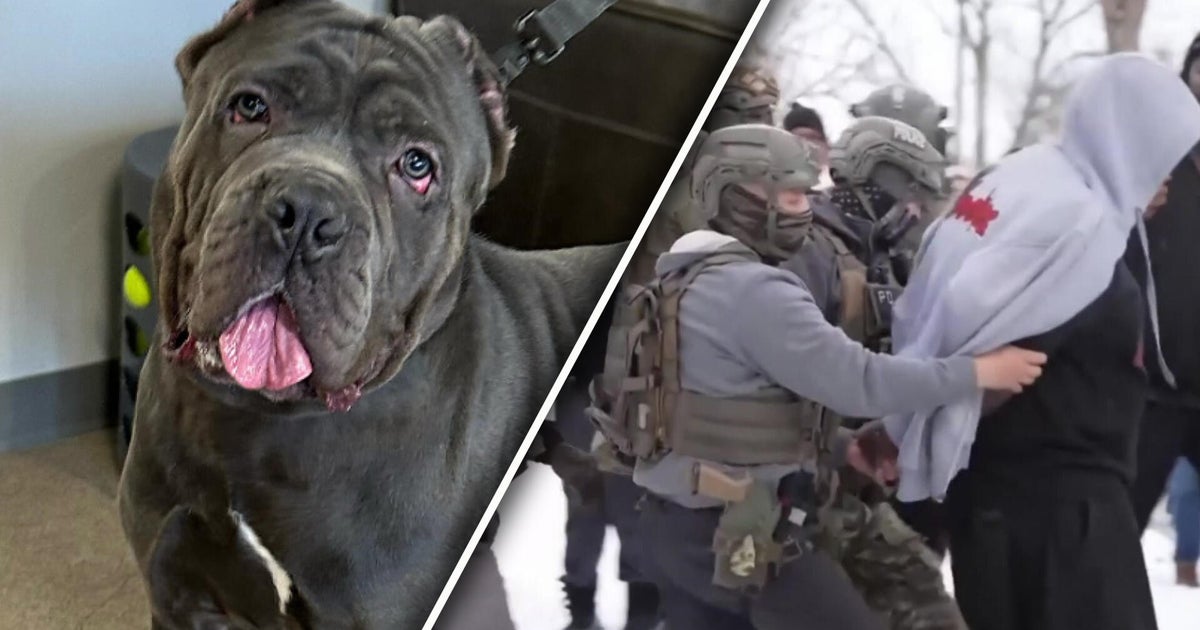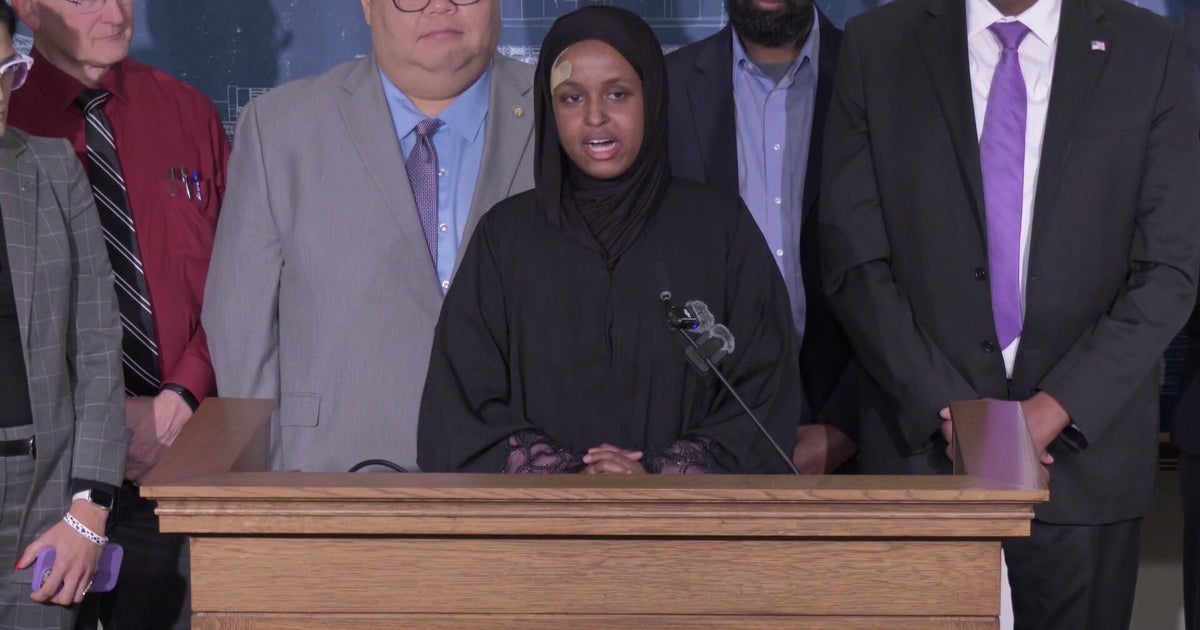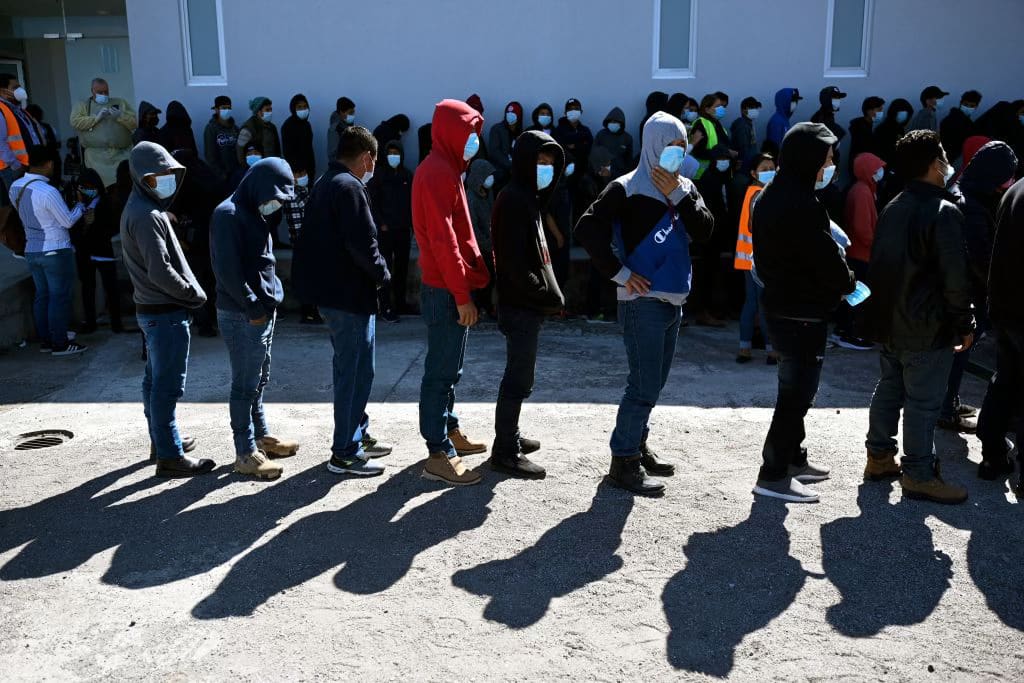Migrants describe frigid, hungry days in "ice boxes" and "dog pounds"
In exhibits filed in federal court this month, more than 200 migrants detained at the Mexican border this year describe "hieleras" and "perreras" -- Spanish for "ice boxes" and "dog pounds" -- nicknames for the facilities where they were initially taken after being apprehended by federal authorities.
Their testimonies speak of food "not fit for consumption," overcrowding and abuse.
The statements, which were given to attorneys who interviewed detained migrants and inspected detention sites in June and July, are the latest salvo in the decades-old Flores v Reno case, which in 1997 led to national standards for facilities holding migrant children. Attorneys at the Center for Human Rights and Constitutional Law say the federal government is currently violating those standards.
The 223 statements describe Customs and Border Protection facilities in Texas, Arizona, and California. They show families being separated and held in overcrowded, cold cages, where moments of sleep are hard to come by. Many said even after being apprehended in wet clothes, they were not given a chance to change before being placed in "ice boxes" or the "dog pounds" that some said were even colder.
Lidia S. is one immigrant who gave testimony. The 21-year-old, detained in Texas last month, said she came to the U.S. from El Salvador with her four year old son after witnessing a decapitation, and later learning that the perpetrators had been asking about her.
"I was scared for my life and the life of my little boy," Lidia told lawyers in the United States.
Soon after crossing the border in Texas on or around June 13, she and her son were apprehended and taken to one of the nearby holding facilities.
Their first American night was "so cold that my son and I shivered the entire time." She says they were given sandwiches that were frozen, foul-smelling and inedible.
She and her son were kept in separate cages, "so overcrowded that we could not walk around or sleep," she said.
"The female guards were yelling at the mothers separated from their children not to look at their children in separate cages. The female guards told the mothers and children that they would be punished for looking at each other," she said.
In statement after statement, migrants recounted similar details about the "ice boxes" and "dog pounds."
Ana V, a 26-year-old woman from El Salvador, said she was escaping threats from people who promised to kill her for being gay when she came to the United States with her six-year-old daughter. She said those same people had already beaten her transgender friend to death.
She was apprehended soon after crossing the Mexican border with the United States on or around May 4 this year. Soon, she and her daughter were taken to a "dog pound."
"The guards called me and my daughter lazy and kicked me with their boots in order to keep me awake so that my daughter and I could not sleep. If the children did fall asleep the guards would wake them up," she told lawyers.
Keylin, M, a 16-year-old girl from Honduras, was one of many who recalled rotten food.
"We were given food, but the food was frozen and not fit for consumption. It smelled so bad that we went hungry instead of eating it," she said.
Keylin described being held for four days after being separated from her mother.
"I was scared for the guards and scared I would be deported without my mother," she said. "I did not know where she was. I am still depressed. I also have nightmares and a lot of anxiety because of the separation."
She said guards made her and other girls strip naked in front of them "and leered at us" before they could shower.
In a report filed in the Flores case last month, CBP juvenile coordinator Henry Moak Jr. said that the department makes extensive efforts "to ensure all minors in CBP custody are treated with dignity, respect, and special concern for their particular vulnerability as minors."
But Center for Human Rights and Constitutional Law attorney Peter Schey said in a July 16 filing that the testimonies paint "a picture not just of forcibly separating thousands of children from their parents, but on a much broader level of a program of forced hunger, forced thirst, forced sleep deprivation, coupled with routine insults, threats, and physical assault, that leave [children] crying, trembling, hungry, thirsty, sleepless, sick, and terrified."
A spokesman for CBP declined to comment on the allegations.
"As a matter of policy, U.S. Customs and Border Protection does not comment on pending litigation. However, lack of comment should not be construed as agreement or stipulation with any of the allegations. CBP takes all allegations seriously, and investigates all formal complaints," the spokesman said in an email to CBS News.
However, in a June 1 court filing, Moak wrote that he conducted more than three dozen interviews with minors in custody during recent site visits and concluded that the agency was complying with the Flores agreement.
"During the interviews, minors and/or their parents confirmed that, in general, minors received meals and snacks; had access to drinking water, functioning toilets, and functioning sinks; and were held in rooms that were maintained at an appropriate temperature," Moak wrote.





